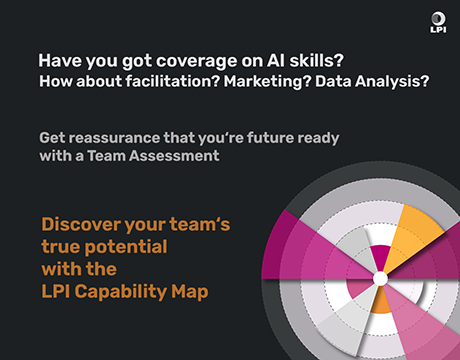
Immersive technologies in L&D at Learning Technologies 2022
Where and how are virtual and extended reality technologies making to L&D? Learning Technologies 2022 has the answer.
Virtual reality (VR) has been around for a while. So has Augmented Reality (AR) and a collection of extended realities, but have they made a difference to workplace learning? The answer is an unqualified yes. They are not the answer to everything, but where they can be used, they certainly are being used, and thanks to lower hardware costs, better software and wider acceptance, they have moved from 'nice idea' to practical reality, as this session shows.
The ITCLO’s Tom Wambeke (Chief Learning Innovation) and his 20-strong team devote themselves full-time to researching the latest learning technologies, and using them in practice. In this session he’ll start with a short review of the extended realities technology landscape, then take you through a series of case studies of where Virtual Reality has been used to augment training, not just by replicating a physical environment, but by doing what is not possible in the physical world. Beyond technological headsets, in search for changing mindsets:
Extended realities: the hype, the possibilities and the impossible in L&D, takes place on day two of the conference, 5 May, covering:
- Setting the scene: where are we now with VR, AR and other extended realities?
- Extended realities create a lot of data – examples of using it well
- How AR is affecting vocational training positively
- Case studies of VR boosting learning and performance
- Where the future extended realities for learning is heading
The full programme is available on the event website: Learning Technologies 2022 Conference. Conference passes are on sale: Learning Technologies 2022 Conference Conference Passes.
Learning Technologies 2022
4-5 May 2022, London ExCeL
#LT22UK
Tom Wambeke
Chief Learning Innovation, International Training Centre of the ILO (United Nations)
Tom Wambeke, Belgium, is graduated in Educational Sciences, holds a Master in Cultural Management and an Executive Business LEAD degree in Innovation at Stanford University.Before joining the International Training Centre of the ILO he was assistant Professor at the University of Leuven and innovation coach at Open Higher Education.
He is currently Chief of Learning Innovation which specializes in providing sustainable learning solutions with the objective to generate impact and organizational change. The unit he is leading has a double mandate: to strengthen the Centre’s in-house capacity to apply state-of-the art learning and knowledge sharing methods and technology, and to provide (e)-learning services to outside partners on a global scale. In this context he works closely together with UN agencies, development banks, international organisations, governments and NGO’s.
As a certified international facilitator (IAF) he’s actively involved in strategy facilitation, participatory knowledge sharing, networked learning and ICT4Development. This he combines with a passion for complexity adaptive thinking, foresight analysis and futures exploration.



